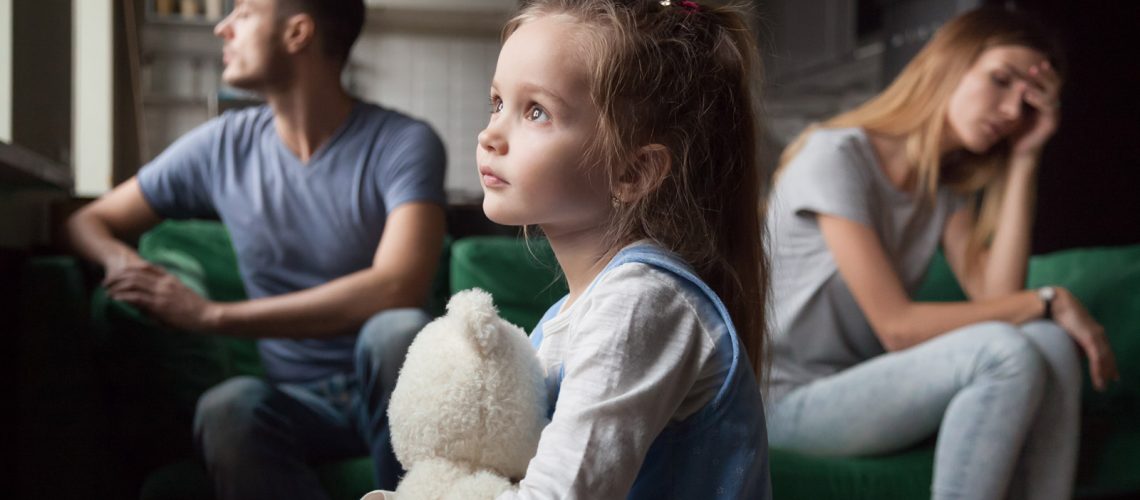The Christmas vacation season, with the array of decorations and advertising icons and all the rhetoric of family and good feelings that accompany them, can sometimes and for some prove to be a kind of emotional “trap,” painfully highlighting the discrepancy between idealized images, desires, aspirations and the aspects of one’s reality. All of this can lead to negative effects on health and well-being with significant increases in stress levels and sometimes relapsing into issues of anxiety and depression
This applies somewhat to everyone but certainly more strongly to families where there has been a separation. Of course, if the separation is recent the difficulty and decompensation are more obvious, but time does not always heal all wounds and the Christmas season functions as an emotional as well as “organizational” “reactivator.”
Christmas Eve, Christmas Day, New Year’s Eve, New Year’s Day and Epiphany can become days when, instead of breathing an air of sharing and celebration, there is an air of conflict.
Arguments and tensions are commonplace among parents regarding the management of child placement and visitation, gifts, visits to grandparents, vacation homework…even the wardrobe each child must bring.
The judge at separation sanctions, with a standard pre-printed formula that should work for everyone, where and with whom the children are to be placed based on an alternation of days (eve with one, Christmas with the other) or year (one year with dad and the next with mom). But in reality this does not always work, and indeed sometimes slavish adherence to what is written becomes a pretext for conflict. We could say that the only rule is that there are no rules except those that parents will be able to give themselves to help their children breathe a peaceful atmosphere.
Separated parents are faced with difficult decisions that need to be weighed carefully: the displeasure of the children, the excess of gifts and promises (with mostly compensatory value) the possible opportunity to bring the whole family together for the occasion, the enlargement of the context with the inclusion of any new partners….
It is important to keep one thing in mind: Everyone has to deal with a leak (In technical language, it is called a mourning) and for everyone Christmas and the New Year’s Holidays will be something different and partial from both the ideal and perfect fantasy image and the memory of past holidays.
Children have experienced or are experiencing the loss of the family security they took somewhat for granted. They will find themselves missing either parent, unless the parents decide to spend the holidays together. In this case, however, they need to be very careful both not to instill in their children false expectations of possible reconciliations and the relational climate between them, which, if too tense, could have an effect on their offspring contrary to their intentions, making them, among other things, feel responsible for things for which they have no responsibility.From the whole situation the children may take secondary benefits, such as double gifts, double celebrations, double ski vacations. The risk is that, if not helped and accompanied to go through the pain of loss, they will cynically settle into a mode of anesthetizing grief through the accumulation of objects.
Individual parents, in addition to experiencing the loss (whether wanted or suffered) of their partners and family unity, experience the embarrassment and burden of responsibility of having to cope alone with their children, their expectations and disappointments, and the celebrations they manage to prepare for them. On the days then when the children are with the other parent each will have to confront his or her own loneliness and “diversity” surrounded probably by “normal” little families looked upon with a mixture of envy and a sense of failure. In fact, ex-spouses, regardless in fact of the story that led to their separation, find themselves still feeling responsible for the earthquake that has hit their families, guilty for not being able to provide their children with the best and best Christmas possible, just like everyone else.
The grandparents (and all other members of the families of origin) must also take note of a loss, a part time, a harmony (or an illusion of harmony) that has been lost. If it triggers protective impulses of the lonely and unfortunate child-daughter, competitive cues between families, needs for role affirmation, and appropriation of emotional ties, all this certainly does not help children, pulled into conflicts that can tear them apart and make them feel responsible and guilty for lack of loyalty.
Then if there are new companions or partners, the situation becomes even more complicated and delicate. For goodness sake there are recomposed families that work, but this is always the result of a slow and very careful chisel work that does not want to impose idealized and pre-packaged models but that starts from the recognition and appreciation of the particular history of each component and where adults and their aspirations have to give way to the needs of the youngest. It is a matter of time and gradualness, as well as honesty and reliability. After all, these are the basic ingredients of trust, and trust is the connective tissue of any good family relationship.




































































































